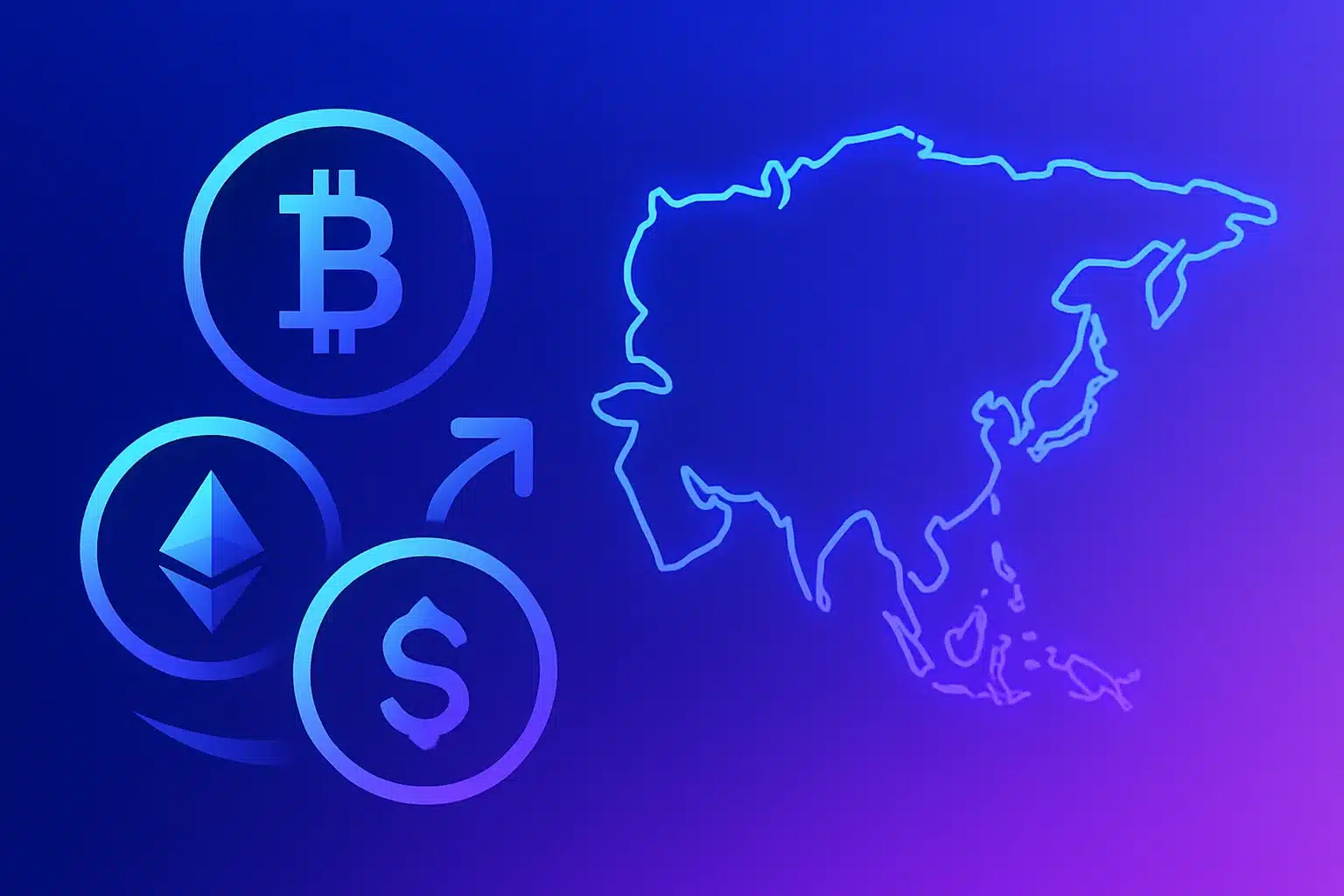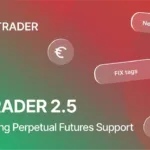Asia has become the beating heart of global cryptocurrency activity. From Tokyo to Mumbai, crypto adoption is accelerating at different speeds and under very different regulatory environments. Countries such as South Korea and Japan have adopted strict but clear licensing regimes, while others, including India and Thailand, are still shaping their long-term policies. This diversity makes Asia one of the most dynamic yet complex regions for crypto exchanges.
Whether you are a retail investor looking for user-friendly mobile apps, or an institutional desk seeking deep liquidity, the choice of exchange can determine not just your trading experience, but also your exposure to regulatory and operational risks. In this guide, we highlight the top 10 crypto exchanges in Asia, assessing them on user base, liquidity, regulatory compliance, and product innovation.
1. Binance

Binance is the largest crypto exchange globally, and Asia remains one of its strongest regions despite regulatory challenges. Originally founded in China, it quickly grew into a global powerhouse before relocating to friendlier jurisdictions. Today, Binance remains deeply embedded in Asian markets such as the Philippines, Vietnam, and India, where it is a top choice for both retail and institutional traders.
Its platform offers everything from spot and futures trading to staking, launchpads, and NFT marketplaces. While critics point to its shifting headquarters and regulatory scrutiny, Binance continues to dominate thanks to liquidity depth and unmatched product variety.
Key strengths: High liquidity, extensive coin listing, global brand
Regulatory status: Varies by country; under tighter scrutiny in Japan, Singapore, and India
2. OKX

OKX (Hong Kong) has become a formidable rival to Binance, combining robust trading infrastructure with a forward-looking focus on Web3. Headquartered in Seychelles but heavily tied to Hong Kong, OKX is positioning itself at the center of Asia’s evolving digital asset landscape.
Its ecosystem spans derivatives, DeFi gateways, wallets, and developer tools. This makes it particularly appealing to institutional clients and builders in Asia who want more than just an exchange. As Hong Kong opens up crypto licensing again, OKX is poised to be a regulatory success story.
Key strengths: Web3 integration, DeFi gateway, fast-growing and developer-friendly ecosystem
Regulatory status: Expanding compliance in Hong Kong and UAE
3. Bybit

Bybit (Singapore/Dubai) began in Asia and built its reputation on derivatives trading, offering perpetual contracts and leveraged products that quickly gained traction with professional traders. Known for speed and uptime, it also offers a highly polished mobile app that resonates with the region’s younger investor base.
Although its corporate headquarters shifted to Dubai, Bybit maintains strong ties with Singapore and East Asia. It is now diversifying into spot markets and Web3, making it more versatile for everyday traders.
Key strengths: Derivatives trading, intuitive UI, strong mobile experience
Regulatory status: Registered in UAE, expanding licensing in Asia
4. Upbit

Upbit is South Korea’s undisputed market leader. Backed by Kakao, one of the country’s tech giants, Upbit benefits from seamless integration with local apps and payment rails. Its domestic dominance is unmatched, handling most of South Korea’s crypto volume.
The exchange has also expanded into Southeast Asia, operating licensed exchanges in Thailand and Indonesia. Upbit is a textbook example of how local exchanges can thrive by combining compliance with a deep understanding of consumer behavior.
Key strengths: Strong fiat on-ramp in Korea, Kakao integration
Regulatory status: Fully licensed under South Korea’s FSC
5. Coincheck

Coincheck stands out in Japan for its reliability and trust. After suffering a major hack in 2018, it rebuilt its reputation under the ownership of Monex Group, a traditional financial institution. Today, it is one of the most secure and regulator-aligned exchanges in the country.
Its simple design makes it ideal for beginners, while its compliance-first approach reassures institutional players. With Japan’s FSA enforcing strict rules, Coincheck represents how regulatory clarity can strengthen consumer trust in crypto.
Key strengths: Local reputation, regulatory compliance, beginner-friendly
Regulatory status: Licensed by Japan’s FSA
6. Bitkub

Bitkub dominates Thailand’s crypto scene, accounting for over 90% of trading volume. Its strength lies in localisation, Thai baht on-ramps, local customer support, and community outreach. For Thai users, Bitkub is often the default choice.
The exchange has faced regulatory reviews but continues to maintain its dominant position. It shows how localized exchanges can thrive even when global giants like Binance have limited direct access.
Key strengths: Localised support, fiat on-ramps, dominant market share
Regulatory status: Licensed by Thailand’s SEC
7. WazirX

WazirX is India’s largest exchange, well known for its grassroots community and user-friendly mobile platform. It benefited from its early acquisition by Binance, though operational ties have loosened.
India’s uncertain stance on crypto taxation and regulation makes operating here difficult, but WazirX remains a strong player thanks to INR pairings and its local-first strategy.
Key strengths: Localised experience, INR trading, strong community
Regulatory status: Uncertain due to India’s evolving crypto laws
8. Gate

Gate is a global exchange with a heavy Asian user base. It is especially popular among traders seeking altcoin exposure, often listing tokens earlier than competitors. Its margin and futures products attract more advanced users, while liquidity is deep across smaller-cap coins.
However, Gate’s compliance record varies by country, making it better suited for experienced traders who prioritize coin access over strict regulatory clarity.
Key strengths: Wide coin variety, margin/futures trading
Regulatory status: Mixed; recently expanding compliance efforts
9. MEXC

MEXC (Singapore) is growing rapidly in Southeast Asia, appealing to users with its low fees and strong liquidity in altcoins. Though less well-known in the West, it has become a hub for traders seeking exposure to newer or mid-cap tokens.
Its fast listing process and responsive support team have helped it gain traction, particularly in markets like Vietnam and Malaysia.
Key strengths: Fast listing process, responsive team, low fees
Regulatory status: Registered in multiple jurisdictions
10. Tokocrypto

Tokocrypto (Indonesia), backed by Binance, is Indonesia’s largest and most compliant exchange. Its strong fiat gateway makes it easy for Indonesians to access crypto with their local currency, a key differentiator in a fragmented market.
Operating under the Commodity Futures Trading Regulatory Agency (Bappebti), Tokocrypto demonstrates how partnerships between global giants and local operators can combine international expertise with local trust.
Key strengths: Local currency integration, Binance-backed tech
Regulatory status: Licensed under Bappebti
Final Thoughts
Asia’s crypto exchange market reflects the diversity of the continent itself. Global players like Binance, OKX, and Bybit dominate in terms of liquidity and product offerings. At the same time, domestic champions such as Upbit, Bitkub, and Coincheck thrive by aligning with local regulations and integrating with homegrown ecosystems.
For traders, the best exchange often depends on priorities:
- Retail investors may value fiat on-ramps, simple apps, and community support.
- Institutional players will prioritize liquidity, security, and regulatory clarity.
- Advanced traders may gravitate to platforms with wide token variety and sophisticated derivatives.
Ultimately, Asia demonstrates that there is no single “best” crypto exchange. Instead, the top platforms reflect a balance of global reach and local specialization, shaped by unique regulatory and cultural landscapes. As regulations mature, Asia will continue to lead innovation and adoption in the crypto industry.
















